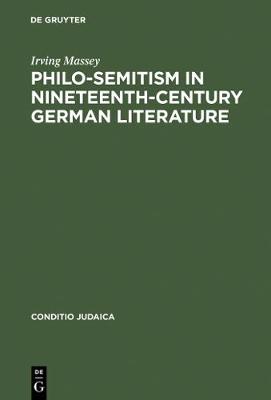Conditio Judaica
1 primary work
Book 29
The work begins with an attempt to understand the philosophy of Nazism and its attendant anti-Semitism, as a necessary prelude to the study of philo-Semitism, which also displays a continuous tradition to the present day. Most of the non-Jewish authors in Germany in the nineteenth century expressed both anti-Semitic and philo-Semitic views (as did most of the German-Jewish authors of that same time); the following work deals with philo-Semitic texts by the non-Jewish authors of the period. The writer who provides the largest body of relevant material is Leopold von Sacher-Masoch, but works by Gutzkow, Bettine von Arnim, Annette von Droste-Hulshoff, Hebbel, Freytag, Raabe, Fontane, Grillparzer, Ebner-Eschenbach, Anzengruber, and Ferdinand von Saar are also examined, as are several tales by the Alsatian authors Erckmann and Chatrian. There is a short chapter on women and philo-Semitism. The conclusion draws attention to the feelings of guilt that are revealed in a number of the texts.
